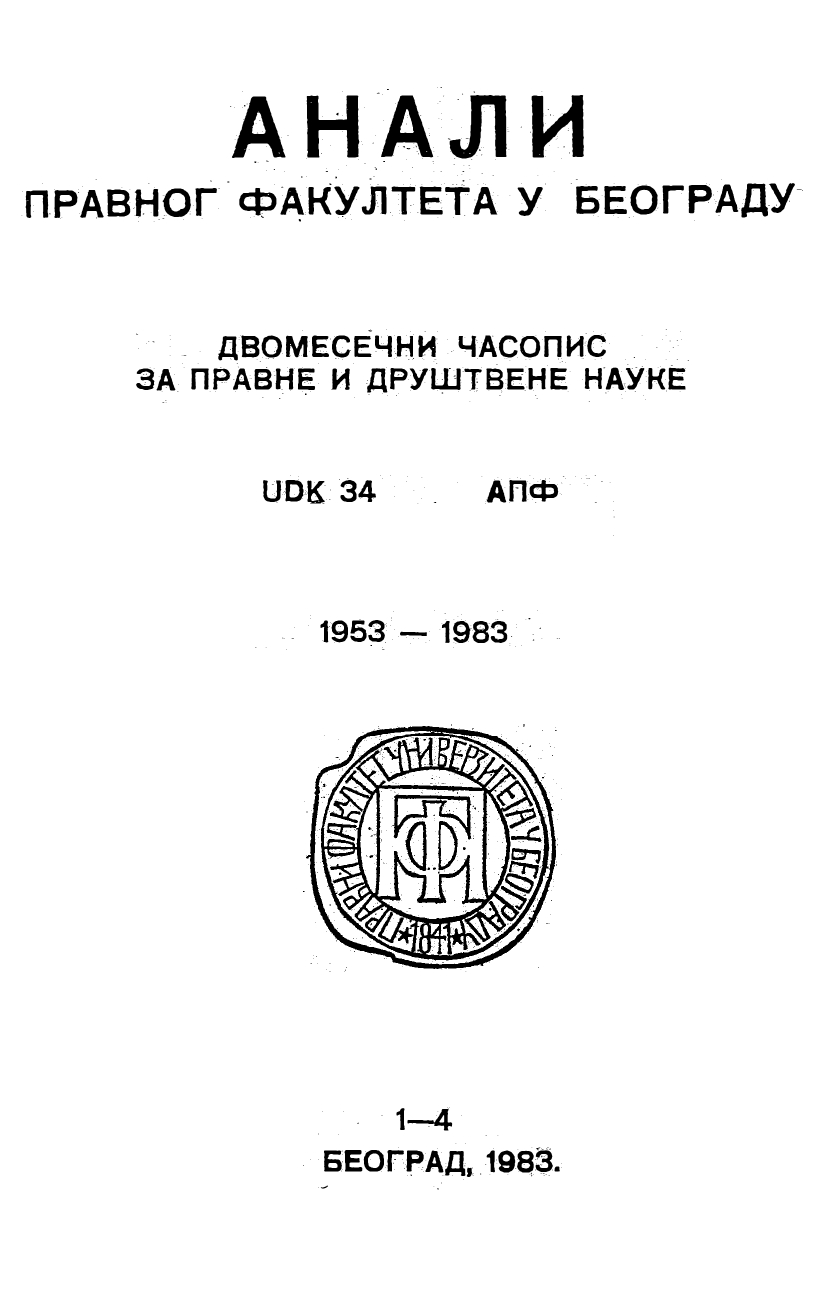ПОРЕСКА ПОЛИТИКА У ФУНКЦИЈИ ОСТВАРИВАЊА АНТИИНФЛАЦИОНЕ ПОЛИТИКЕ
TAX POLICY AS AN ELEMENT OF THE REALIZATION OF ANTI-INFLATIONARY POLICY
Author(s): Dejan PopovićSubject(s): Politics / Political Sciences, Politics, Fiscal Politics / Budgeting
Published by: Правни факултет Универзитета у Београду
Summary/Abstract: In this essay, the author analyses the possibilities of utilisation of tax policy measures for the overcoming of „stag-flationary” economic disturbances. Tax policy means the policy of financing of the social expenditures — therefore, not only tax policy but also policy of contributions. Considering this problem from the Keynes’ point of view, it has been stated that anti-inflationary fiscal policy should provide for the increase of tax rates and the decrease of public expenditures, in order to achieve a lower aggregate demand through a budget sufficit. However, the enterprises experience these taxes as the cost of production, so that a tax rise may constitute an element of the process of cost inflation. In the essence, a tax rise is an anti-inflationary measure, because it performs an effect of demand, on the one hand, while on the other hand, performing the effect of costs, a tax rise leads to a rise in prices. The sales tax has the most powerful inflationary potential, while the inflationary potential of the enterprise income tax and the personal income tax is less pronounced. The anti-inflationary tax policy must embody two groups of measures. One, it is necessary to reduce the volume of the fiscal burden of the economy, which is, most particulary in the case of Yugoslavia, adversely proportionate in respect of the level of economic development. Two, it is necessary to change the tax structure, so that the participation of those taxes with a lesser inflationary potential on account of the sales tax is increased. It is necessary, also, to eliminate the factors having an inflationary effect from the tax structure. In the tax system of Yugoslavia, these factors are: the method of statement of personal earnings (where taxes and contributions are not deducted from the personal earnings, but are payed on the basis of the amount of personal earnings), double taxation of the portion of income of the basic organization of associated labour, where the total amount of payed personal earnings is not deducted from the base for the calculation of taxes and contributions on enterprise income as well as the possibility that even those organizations of associated labour operating at a loss should pay these taxes.
Journal: Анали Правног факултета у Београду
- Issue Year: 31/1983
- Issue No: 1-4
- Page Range: 556-577
- Page Count: 22
- Language: Serbian

